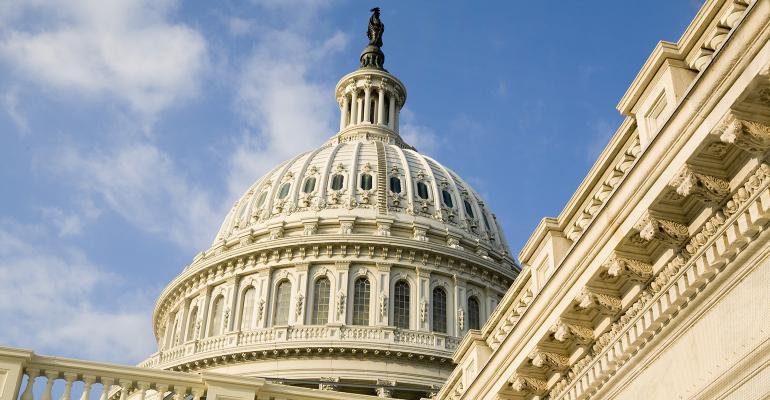By Lisa Lambert
WASHINGTON, June 8 (Reuters) - Republicans in the U.S. House of Representatives voted on Thursday to replace the 2010 Dodd-Frank Wall Street reform law, a move that is expected to die in the Senate but open the door to revamping or eliminating regulations that came out of the 2007-09 financial crisis.
House passage of the CHOICE Act is the farthest Republicans have gotten so far in undoing regulations they say hurt small banks and make the government responsible for bailing out big financial institutions should they fail.
Republican President Donald Trump is pushing for deregulation across the federal government. Next week the Treasury Department is expected to release the first in a series of reports on lightening financial rules and re-interpreting Dodd-Frank provisions.
Lawmakers in the near future could also approve smaller bits of legislation to undo specific measures in Dodd-Frank, one of the biggest achievements of former President Barack Obama, a Democrat. Earlier on Thursday, Senate Banking Committee Chairman Mike Crapo, a Republican, said he would hold several hearings in coming months with the goal of "ultimately passing a meaningful and bipartisan reform package."
The bill also would serve to kill the Department of Labor's fiduciary rule, which went into partial effect on Friday.
On a day when the national spotlight was on the Senate testimony of former Federal Bureau of Investigation Director James Comey, the fight over repealing Dodd-Frank consumed the House.
The bill was approved along party lines by a vote of 233-to-186 after four hours of often-loud debate. The most powerful Democrat in the chamber, California's Nancy Pelosi, described the legislation as "dastardly." The argument even spilled over to a House committee hearing on the budget of the Commodity Futures Trading Commission.
There, Democratic Representative Rosa DeLauro demanded that acting CFTC chair J. Christopher Giancarlo, a Republican, provide three examples in writing to prove his statement that overregulation was hurting the economy.
Authored by Financial Services Committee Chairman Jeb Hensarling, a Republican, the CHOICE Act allows banks to choose between complying with Dodd-Frank or holding onto more capital.
While the act was meant to address bankers' concerns, many in the banking sector do not support it because they consider the required capital level too high. Also, the American Bankers Association expressed disappointment that the bill had retained Dodd-Frank limits on debit card fees.
The act restructures the Consumer Financial Protection Bureau, created to guard against fraud in lending. It eliminates the Volcker rule that limits trading activities by banks. Also, the government would no longer be able to designate non-bank institutions as "systemically important," which triggers increased oversight.
The Congressional Budget Office, a non-partisan evaluator of legislation, estimates the bill would save the federal government $24 billion over a decade, mostly by lifting the government's authority to step in and unwind failing institutions.
Republicans described the act as a jobs-creator, saying Dodd-Frank's numerous requirements made it impossible for community banks to lend to small businesses. They said changing the independent CFPB would make the agency more accountable to lawmakers.
Democrats said the legislation would bring about another economic catastrophe by eliminating vital checks on the financial system. They said the CFPB changes, including eliminating its complaints database, would make it easier for firms to take advantage of consumers along the lines of the housing crisis, where millions were trapped in mortgages they could not afford.
The Senate is not expected to take up the bill in its entirety, even though it has Trump's backing. Senator Elizabeth Warren, a leading Democrat, initially conceived of the CFPB and was Obama's first choice to lead it. She is expected to rally opposition in the form of a filibuster against changes to the agency.
Still, Crapo lauded the bill's passage in the House as a "significant and thoughtful effort,” a sign he may include some of its provisions in a future bill.
"The CHOICE Act makes a positive move away from government micromanagement, and returns to basic principles of safety and soundness and market-driven principles," he said in a statement. (Editing by Leslie Adler and David Gregorio)






